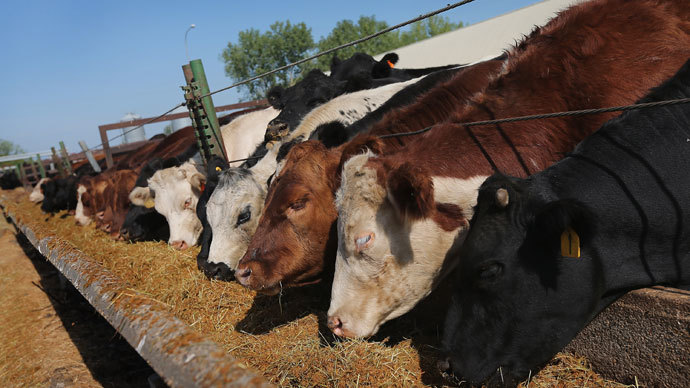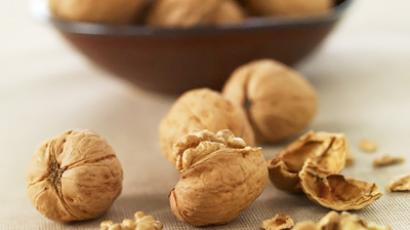FDA takes first step at eliminating antibiotics in animal feed

Federal regulators in the United States are preparing the country’s producers of farmyard animal feed for a change that will make major difference to the diets of chickens, cows, turkey and more.
The US Food and Drug Administration announced new measures on Wednesday that are intended to help phase out the presence of antibiotics in animal feed during the next several years.
The meat and poultry producers of America purchased around 29.9 million pounds of antibiotics in 2011, according to the Pew Charitable Trusts, or more than triple of the amount sold for human use that same year.
Although antibiotics could be administered to animals just as with humans to help fight infections, the drugs also do wonders with regards to beefing up the sizes of those animals for a sliver of the price.
William Flynn, the deputy director for science policy with the FDA's Center for Veterinary Medicine, told USA Today that no one is actually quite sure why antibiotics and antimicrobials make animals grow faster. But the effect allows farmers to feed these animals less and have a much more profitable end product.
"We feed antibiotics to sick animals, which is completely appropriate, but we also put antibiotics in their feed and in their water to help them grow faster and to compensate for unhygienic conditions,” Dr. Gail Hansen, a veterinarian and senior officer for the Pew Campaign on Human Health and Industrial Farming, told CNN. “If you have to keep the animals healthy with drugs, I would argue you need to re-examine the system. You don't take antibiotics preventively when you go out into the world."
The FDA is in the same boat as Hansen and is asking for animal feed companies to decide during the next 90 days if they’ll sign on to a voluntary program. If they enlist, they’ll promise to “voluntarily remove growth enhancement and feed efficiency indications from the approved uses of their medically important antimicrobial drug products,” according to the FDA, “and move the therapeutic uses of these products from over-the-counter (OTC) availability to marketing status requiring veterinary oversight.”
The recommendation was formally made by the FDA on Wednesday, and they hope that the companies that ask to participate will fully implement the changes in three years’ time.
Changes are being suggested for the sake of the animals being unnecessarily drugged, of course. With animals consuming about 80 percent of the nation’s antibiotic supplies, it’s to be expected that antibiotic-resistant “superbugs” are emerging at increase rates among livestock though. That’s then transferred through consumption to millions of omnivorous Americans, and the US Centers for Disease Control and Prevention believes that 2 million people in the US are contracting drug-resistant infections annually right now, causing around 23,000 death a year..
An FDA report released back in April showed that 81 percent of raw ground turkey tested by the agency contained traces of anti-biotic resistant bacteria, with similar tests on pork, beef and chicken yielding similarly disturbing results.
“It is important to use these drugs only when medically necessary," the FDA says on its website. "Governments around the world consider antimicrobial-resistant bacteria a major threat to public health."
"We're heading into a world where antibiotics aren't working," Laura Rogers, the director for the campaign on Human Health and Industrial Farming for the Pew Charitable Trusts, told the Los Angeles Times. "The new normal needs to be one where antibiotics are used as a last choice for human medicine and animal agriculture."
According to the FDA’s deputy commissioner for foods and veterinary medicine, the agency claims they have “every reason to believe that animal pharmaceutical companies will support us” in their effort to phase out antibiotic use among animals.
The FDA has not immediately announced any sanctions that will be taken against companies that voluntarily participate and then are found to be in violation of the program, but an overwhelming response could lead the agency to implement mandatory laws down the line.
Meanwhile, some are saying a voluntary program simply doesn’t do enough.
"The FDA's voluntary guidance is an inadequate response to the overuse of antibiotics on the farm with no mechanism for enforcement and no metric for success," Rep. Louise Slaughter (D-New York) told the LA Times. "Sadly, this guidance is the biggest step the FDA has taken in a generation to combat the overuse of antibiotics in corporate agriculture, and it falls woefully short of what is needed to address a public health crisis."














